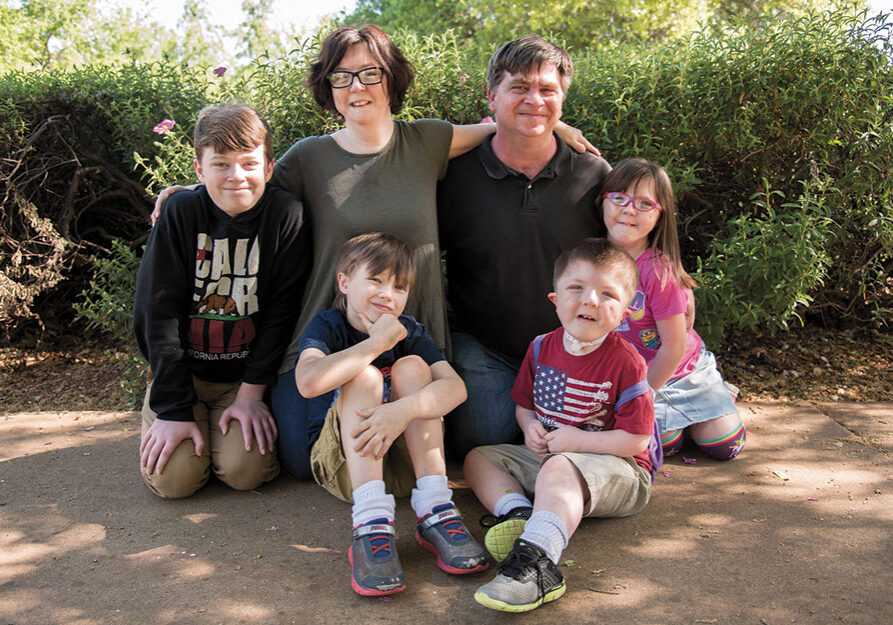Functional skills are the abilities that enable a person to be independent. One of the most important goals of any parent or caregiver of a child with special needs is to teach them how to be as independent as possible.
Learning functional skills can be challenging for children with developmental disabilities. They typically learn by watching others and require lots of repetition and practice to master these skills. Many homeschool parents weave functional skills into their curriculum, but you don’t have to be a homeschooling family to teach your kids the skills they need to know. Knowing how to cook and navigate their home and community safely are important functional skills for independence.
Basic math and safety skills are part of learning to cook
Learning the basics of cooking also allows a child to become competent in other areas, such as basic math and safety. Cooking requires children to understand measurements and volumes, so a cooking lesson can also double as a math lesson.
Safety is always a big concern when raising children with disabilities because many kids have physical limitations that make navigating ordinary tasks like cooking and cleaning extra challenging. Others have poor impulse control or cognitive issues requiring repeatedly doing specific steps before they master a task.
Learning basic cooking safety, such as setting and turning off the oven, is one of the first steps to cooking independently. Learning how to store food properly and check the expiration dates of items on the store shelf and in the pantry are also valuable safety skills to have.
Learning social skills helps kids live independently
For some kids with disabilities, social skills don’t come as easily as they do for their peers, so these skills need to be consistently taught and reinforced. Knowing how to meaningfully and appropriately interact with others is one of the most valuable tools they can learn on the way to living independently in the community.
Using public transportation, following directions, ordering in restaurants, and grocery shopping are a few of the basic social skills that will help your kids be as independent as possible.
Employment is a big goal for many disabled young adults, and communicating effectively with employers, co-workers, and customers is a skill that will help them succeed and grow at their job.
Introduce functional skills early
For parents of kids with special needs, the idea of them venturing out on their own one day can be terrifying. However, by introducing these functional skills early on, you’ll be giving them the best head start and setting them up for success later on. There are several ways to teach and practice functional life skills with your kids.
Take advantage of technology. There are cooking tutorials for kids on YouTube and shows like MasterChef Jr that you can stream online. In addition, several platforms offer online cooking classes for kids.
Interactive books and social stories are also great tools to practice steps for cooking, taking outings in the community, and practicing social skills. You can also practice hypothetical situations using social stories.
Have your child take part in meal planning and grocery shopping. Ask them to write, type out, or dictate a grocery list and then use the list to help them find items in the grocery store. If you’re working on money management skills, have them pick out a few things and practice paying at the register.
Achieving total or partial independence requires learning some functional math skills, such as telling time and money management skills like balancing a bank account, using a debit card or checkbook. Depending on their age and ability, math skills will expand to vocationally oriented skills, like making the correct change or following a schedule.
The most important thing to remember is that children will model adult behavior, and the more they observe, the more they will take in. So watching how you interact with others and navigate everyday tasks like shopping, eating in restaurants, and even sitting down to pay the bills will help prepare them for real-world scenarios later on.
Uniquely Us is a unique opportunity to address special needs issues and concerns and to celebrate life. If you have something in particular you would like to read about, please write to pn@northstateparent.com (please include UU in the subject line).
Posted in: Special Needs, Uniquely Us
Comment Policy: All viewpoints are welcome, but comments should remain relevant. Personal attacks, profanity, and aggressive behavior are not allowed. No spam, advertising, or promoting of products/services. Please, only use your real name and limit the amount of links submitted in your comment.
You Might Also Like...

The Neurodivergent Spectrum: Recognizing and Appreciating Cognitive Diversity
In the tapestry of humanity, each person brings their own unique set of characteristics and experiences. This includes neurodivergent individuals whose minds dance to rhythms all their own. The concept […]

Uniquely Us: Finding Creative Ways to Make Summer Special and Fun
It’s that time of year when families are gearing up for various summer activities. Our beautiful part of the North State provides ample possibilities during these hot months for both […]

Living With Communication Disorder – Uniquely Us
It Can Be A Learning Process For Everyone Last year, my daughter Lilly had an epic meltdown in the car. She was trying to tell me something, but I couldn’t […]

Could Your Child’s Reading Difficulty be Dyslexia?
Children learn to read at their own pace, but if your child is struggling to make significant progress compared to their peers, it may be possible they have a reading […]





